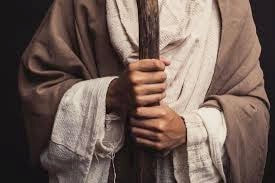 Inanimate objects can be used for good or for ill. A clear example of this truth is found in the biblical account of Moses' life. Upon fleeing Egypt (the first time), Moses took up the profession of a shepherd. As such, he held and rarely parted from the tool of his trade, his staff. With his staff, he wielded power - power to control sheep, fight off predators, and perhaps dissuade would-be thieves. The same staff also provided support to stabilize his feet as he traversed the wilderness or leaned upon it when he shifted his weight for brief respites. When God called Moses to lead people rather than sheep, He allowed the shepherd to keep his staff, even to utilize his staff as a tool of divine purpose. With the staff, Moses . . .
Moses used his staff as a tool to serve God. Unfortunately, however, he also used it in a far less righteous manner, indeed in an unrighteous way.
Notice God did instruct Moses to use his staff. However, He instructed him to use it as a symbol of God's presence. Moses used it as a tool to vent frustration.
God said, "Take the staff: and "Speak to that rock." Moses took the staff and "Struck the rock." Few, if any, of us are shepherds. We do not bear staffs. We do, however, bear tools of our trade. How do you use yours?
For example, in our day, a commonly used tool of trade is a computer keyboard. With the tap of fingers, great power is wielded. Both great strides and far-reaching hurt result from the same keys. It depends on how we use them. How do you use your staff? #ordinarylives
0 Comments
Leave a Reply. |
Archives
October 2023
|
 RSS Feed
RSS Feed